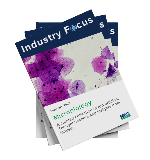Is your doctor competent enough to get the nutritionist to create diet protocols on this to reduce your already significant risks of getting dementia? Do you have a functioning stroke doctor? OR NOT?
Magnesium Rich Foods from Cleveland Clinic here:
Assuming your doctor does nothing and it's all up to you.
Your risk of dementia, has your doctor told you of this?
1. A documented 33% dementia chance post-stroke from an Australian study? May 2012.
2. Then this study came out and seems to have a range from 17-66%. December 2013.`
3. A 20% chance in this research. July 2013.
4. Dementia Risk Doubled in Patients Following Stroke September 2018
Your risk of Parkinsons here:
Parkinson’s Disease May Have Link to Stroke March 2017
The latest here:
Increased intake of magnesium-rich foods could help reduce dementia risk
More magnesium in our daily diet leads to better brain health as we age, according to scientists from the Neuroimaging and Brain Lab at The Australian National University (ANU).
The researchers say increased(Means absolutely nothing. We need EXACT amounts, see below!)
intake of magnesium-rich foods such as
spinach and nuts could also help reduce the risk of dementia, which is
the second leading cause of death in Australia and the seventh biggest
killer globally.
The study of more than 6,000 cognitively healthy participants in the United Kingdom aged 40 to 73 found people who consume more than 550 milligrams of magnesium each day(Which is higher than the RDAs)have a brain age that is approximately one year younger by the time they reach 55 compared with someone with a normal magnesium intake of about 350 milligrams a day.
"Our study shows a 41 per cent increase in magnesium intake could lead to less age-related brain shrinkage, which is associated with better cognitive function and lower risk or delayed onset of dementia in later life," lead author and PhD researcher Khawlah Alateeq, from the ANU National Centre for Epidemiology and Population Health, said.
This research highlights the potential benefits of a diet high in magnesium and the role it plays in promoting good brain health."
Khawlah Alateeq, lead author and PhD researcher, ANU National Centre for Epidemiology and Population Health
It's believed the number of people worldwide who will be diagnosed with dementia is expected to more than double from 57.4 million in 2019 to 152.8 million in 2050, placing a greater strain on health and social services and the global economy.
"Since there is no cure for dementia and the development of pharmacological treatments have been unsuccessful for the past 30 years, it's been suggested that greater attention should be directed towards prevention," study co-author Dr Erin Walsh, who is also from ANU, said.
"Our research could inform the development of public health interventions aimed at promoting healthy brain ageing through dietary strategies."
The researchers say a higher intake of magnesium in our diets from a younger age may safeguard against neurodegenerative diseases and cognitive decline by the time we reach our 40s.
"The study shows higher dietary magnesium intake may contribute to neuroprotection earlier in the ageing process and preventative effects may begin in our 40s or even earlier," Ms Alateeq said.
"This means people of all ages should be paying closer attention to their magnesium intake.
"We also found the neuroprotective effects of more dietary magnesium appears to benefit women more than men and more so in post-menopausal than pre-menopausal women, although this may be due to the anti-inflammatory effect of magnesium."
Participants completed an online questionnaire five times over a period of 16 months. The responses provided were used to calculate the daily magnesium intake of participants and were based on 200 different foods with varying portion sizes. The ANU team focused on magnesium-rich foods such as leafy green vegetables, legumes, nuts, seeds and wholegrains to provide an average estimation of magnesium intake from the participants' diets.
Alateeq, K., et al. (2023). Dietary magnesium intake is related to larger brain volumes and lower white matter lesions with notable sex differences. European Journal of Nutrition. doi.org/10.1007/s00394-023-03123-x

No comments:
Post a Comment